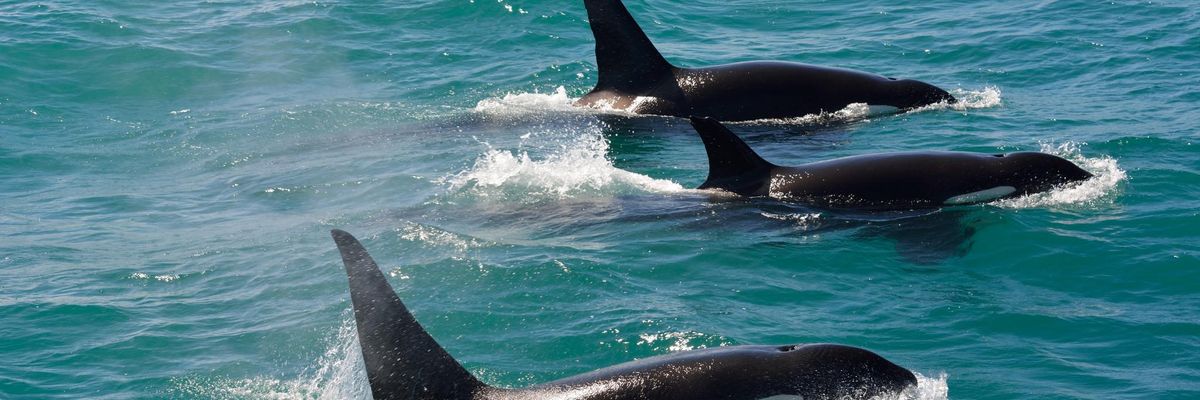In a decision that animal rights advocates hailed as a "game changer," SeaWorld CEO Joel Manby declared on Thursday that the amusement park will "end all orca breeding programs" in response to intense criticism from protesters.
SeaWorld will also invest $50 million over the next five years in the rescue and rehabilitation of marine animals and Humane Society advocacy campaigns. The Humane Society reported that SeaWorld agreed to all these changes as a result of negotiations with the animal rights advocacy organization.
"The sunsetting of orcas in captivity is a game changer for our movement, one that's been a long time coming, and one that is only possible because of your advocacy and participation," the president and CEO of the Humane Society, Wayne Purcell, thanked his organization's members on Thursday.
SeaWorld has been criticized for years by animal rights groups for its orca whale breeding and theatrical programs, which critics have condemned as cruel and inhumane.
In 2013 the documentary Blackfish highlighted abuses by the amusement park in the case of Tilikum, an orca whale responsible for three people's deaths, which the film highlighted as a tragic result of the cruelty of his treatment and the amusement park's unethical confinement of its killer whales.
Critique of SeaWorld's practices reached a fever pitch in response to the devastating film, culminating in calls for a boycott. The amusement park's revenue and stock price has tanked in the last two years, yet it still refused to concede to activist pressure. It even received further backlash when it came to light in February that rather than respond to animal rights activists' pleas on behalf of its whales, SeaWorld had dispatched employees to secretly spy on the protesters' activities.
The changes Manby described on Thursday were a major concession to advocates' demands for better treatment of its captive animals, and it followed the amusement park's November announcement that it also plans to phase out its theatrical orca shows.
But while People for the Ethical Treatment of Animals (PETA) celebrated Thursday's announcement, they also argued that "more must come." The animal rights group urged, "For decades orcas, dolphins, beluga whales, seals and many other animals have suffered in SeaWorld confinement, and to do right by them now, SeaWorld must open the tanks to ocean sanctuaries so that these long-suffering animals may have some semblance of a life outside their prison tanks."
Manby claimed that releasing the remaining orcas into the wild is "not a wise option," saying that orcas raised in captivity will not survive in the wild and noting that habitats for orcas are diminishing as a result of climate change.
PETA rebuts, "Animals who are members of endangered species are no happier in cages and tanks than are animals who aren't endangered. The ultimate hope for those animals lies in protecting their habitats, not in life sentences in a tank."

